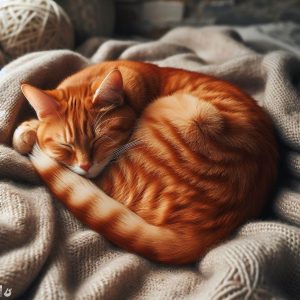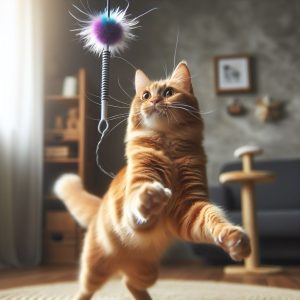Has your curious kitty suddenly adopted odd tic-like mouth movements that have you worried? Lip licking, teeth chattering, gagging, and chewing behaviors might indicate underlying feline health issues.
From dental disease to neurological conditions, this comprehensive guide covers potential reasons for abnormal cat mouth motions plus symptoms to watch for. Vet-approved home care tips will help keep your pet comfortable until a diagnosis is made.
Let’s get to the bottom of what’s causing this quirky new behavior!
Common Medical Triggers for Strange Cat Mouth Motions
Flicking tongues, popping jaws, and twitchy mouths might look silly but often signify kitty discomfort or pathology. Here are 5 common culprits vets see:
Dental Disease
Gingivitis and tooth root abscesses manifest as oral pain. You’ll notice reduced eating, drooling, bad breath, and hesitation to chew. Strange mouth movements are attempts to dislodge painful debris. Cats hide dental issues well though, so also watch for subtle signs like preference for one side of the mouth.
Foreign Objects
Cats exploring the great outdoors sometimes accidentally get grass seeds, foxtails, or tiny sticks trapped between teeth or gums when hunting prey in foliage. Exaggerated biting, licking, and head shaking erupts trying to dislodge irritants.
Gastrointestinal Issues
Nausea from hairballs, food sensitivity, parasites, or GI infection causes exaggerated swallowing motions. Lip smacking and teeth grinding also erupts as catsdeal with stomach acid regurgitating into the esophagus creating soreness.
Tongue Disorders
Oral canker sores, burns from hot food, and fungal infections of the tongue surface or deeper tissues trigger noticeable licking and chewing as pain sets in. Cats try alleviating discomfort through mouth movements. Tumors can also grow on feline tongues.
Neurological Conditions
Disorders of the cerebellum, seizures originating in the brain, developmental delays, dementia and other neural issues often manifest first as subtle head tremors or strange mouth motions like fly catching. The abnormalities come and go unpredictably.
Other Potential Reasons for Weird Mouth Behaviors
While the above 5 causes represent most cases vets see daily, a few other explanations exist for atypical mouth movements including:
- Injury from falls, bites, or scratches
- Toxin exposure like antifreeze or lead
- Vitamin deficiencies
- Brain cancer or tumors
- Stress/psychogenic issues
- Underlying metabolic disease
- Adverse vaccine reactions
- Even dental disease or GI issues
Regardless of root causes, sudden onset mouthing behaviors always warrant medical investigation to diagnose…especially accompanying any below concerning symptoms.
Warning Signs Pointing to Serious Underlying Conditions
Along with the bizarre mouth movements themselves, watch for these other signals suggesting urgent vet examination:
- Excessive drooling
- Raw or bleeding tongue/lip
- Inability to retract tongue fully
- Bad breath
- Reduced eating/drinking
- Weight loss
- Depressed mood
- Poor coat condition
- Excess hiding/lethargy
Catching concerning symptoms early, like those above, gives your vet the best chance of pinpointing underlying illness and starting appropriate treatment to return quality of life.
What Vets Check for When Evaluating Weird Mouth Issues
To dig into possible root causes, vets use a combination of:
Detailed symptoms history – noting when/how movements began, duration, frequency, triggers, accompanying problems
Thorough oral exams – checking for injury, smelling breath, palpating jaws/necks for discomfort, inspecting mucus membranes
Complete blood count tests – identifying inflammation markers signaling infection or gastrointestinal anomalies
Biochemistry blood analysis – hunting for organ function issues like liver, kidney, electrolyte troubles
Urinalysis — checking for indicators of metabolic problems
Diagnostic imaging – dental x-rays search for abscesses or bone changes while CT scans detail soft tissue structures
Biopsies – occasionally needed of mouth tissues to analyze cells when infection isn’t clear
This suite of assessment tools allows narrowing down to a definitive diagnose 95% of the time.
Top 7 Homecare Tips to Support Your Cat Until Vet Visit
While pursuing medical guidance, these at-home steps help keep your cat comfortable:
#1 – Provide Plenty of Fresh Water
Hydrating supports healing and keeps mucus membranes moist if mouth discomfort exists. Consider adding tasty broths or tuna juice to entice drinking.
#2 – Feed Odour-Free Soft Foods
Canned pates, meat baby foods, or soaked kibble reduce chewing irritation. Smelly foods may nauseate queasy cats too.
#3 – Monitor Eating and Chewing
Ensure your cat still consumes adequate nutrition/calories despite mouth troubles. Does difficulty chewing certain textures show emerge? Note all observations.
#4 – Discourage Licking or Chewing Problem Areas
This prevents worsening wounded tongue/gum spots. Use Elizabethan collars or soft socks over paws if necessary to deter scratching or rubbing the mouth.
#5 – Wipe Away Drool Buildup
Gently clear saliva accumulation on lips/chins to keep skin moist and prevent matting and soreness.
#6 – Track Any New Symptoms
Keep written notes on emerging signals like energy level changes, suspicious lumps, coordination issues in case vet requires the bigger picture timeline later.
#7 – Avoid Putting Hands Near Mouth
Instinctively we want to inspect odd mouth movements up close, but this risks being bitten if kitty lashes out from pain. Let your vet do oral investigating.
The sooner underlying illness is identified, the faster tailored treatment brings relief and quality life again. In worst cases, swift action can prevent rapid deterioration. Stay vigilant with tracking details.
When to Seek Emergency Vet Attention
While scheduling a regular vet visit to discuss strange mouth behavior, fast track to emergency hospitals if you observe:
- Profuse bleeding
- Seizure-like tremors
- Difficulty breathing
- Collapse episodes
- Prolonged hiding/lethargy
- Loss of appetite beyond 24 hours
These red flag symptoms indicate suffering animals requiring urgent care to stabilize conditions.
Getting Back to Normal Life
With tactical patience and TLC at home plus veterinary effort pinpointing root causes…the vast majority of weird mouth movements can be successfully cured or managed for good life quality again.
From antibiotic cures for hidden dental abscesses to omega supplements easing neurological signaling…restoring comfort often proves simpler than feared once proper diagnosis happens.
Cats also bounce back quickly thanks to their remarkable resilience. So stay hopeful!
Why You Shouldn’t Worry Too Much
Finally, remember that some occasional strange mouth movements fall within the range of normal feline behavior too.
Common examples include:
- Flehmen reactions to interesting smells (curling upper lip)
- Regurgitation of hairballs (neck stretching)
- Teeth chattering when spying prey out a window
- Lip licking during grooming sessions
So if a behavior comes and goes but your cat otherwise acts normal, monitor a few days before reacting. Not all oddities require vet intervention!
Now Give Kitty a Gentle Hug!
Hopefully this guide gave you a solid starting point for understanding potential causes of weird sudden mouth movements as well as tactical steps to safeguard your cat until your vet investigates further.
Try not to stress excessively. Be methodical gathering helpful details for them to analyze instead.
Then give your furry friend extra TLC and play to brighten their mood as you work together to get through this speed bump. Their unconditional love deserves your patience and partnership!
Stay hopeful and take care! This too shall pass and those amazing feline smiles will return bigger than ever!



